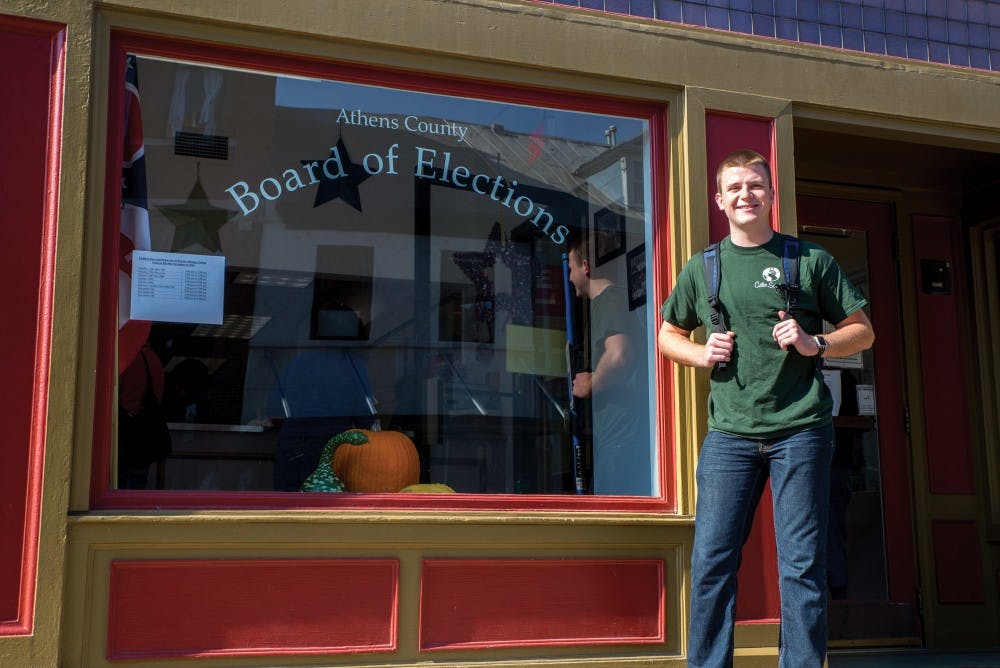
While some students at Ohio University are excited to support their candidate in next week’s presidential election, not everyone is planning to cast a vote. Some, like freshman Ben Beaty, have decided to sit this election out.
“Once we went (past) the primaries, I was not satisfied with either candidate,” Beaty, who studies accounting, analytics and pre-law, said.
Beaty said he doesn’t agree with Democratic nominee Hillary Clinton on economic issues, and Republican nominee Donald Trump worries him because he has “no ideological base” and “flip-flops” on issues. He looked into supporting a third-party candidate but is not sold on that either.
“I don’t agree with the Green Party candidate (Jill Stein) at all,” Beaty said.
Beaty said he leans toward an “economically conservative, socially liberal” stance and once thought Libertarian nominee Gary Johnson might be for him. That opinion, however, has changed. Libertarian vice presidential candidate Bill Weld’s comments about Donald Trump last week discouraged him even further, Beaty said.
“After careful observation and reflection, I have come to believe that Donald Trump, if elected President of the United States, would not be able to stand up to this pressure and this criticism without becoming unhinged and unable to perform competently the duties of the office,” Weld said in a statement.
Weld addressed the statement mainly to “those in the electorate who remain torn between two so-called major party candidates whom they cannot enthusiastically support.”
Some took this statement to mean that Weld was urging voters to support Clinton in an effort to support Trump. Beaty said that to him, Weld's statement showed Johnson and his campaign were not “truly in it to win it.” That helped lead to his decision not to vote in the presidential election, although he said he will vote in other races on the ballot.
“I can’t put my vote behind that,” Beaty said.
Johnson’s campaign has since denied Weld meant voters should support Clinton.
“I would say I’m really discouraged in … the two-party system,” Beaty said. “It doesn’t represent everyone’s point of view.”
Nikki Edwards, a senior studying English, said everyone should vote, even if the candidates are not ideal.
"I think when you choose not to vote, you are giving a vote to somebody you don't want," she said.
Brittany Rothert, a junior studying child and family studies, also has no plans to cast a vote for a presidential nominee this year.
“I don’t really get too involved in politics,” she said. “Also, I felt like either way we’d be screwed, so I just kind of backed out from it.”
Rothert said she has felt some pushback from her roommates who say it’s important for her to vote, but she said the same principle that grants Americans the right to vote also grants them the right to abstain.
“It’s my right to choose whether I want to vote or whether I don’t want to, and I chose not to,” she said.
DeLysa Burnier, a political science professor at OU, said she hasn’t seen specific research about voter apathy, but that there are several reasons students might abstain from voting.
“The biggest issue is that they don’t feel like the major candidates bring up or address issues that are important to them,” Burnier said.






